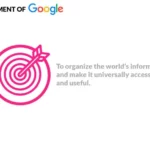Modern drivers increasingly recognize their role in environmental protection, and simple changes in driving and maintenance habits can significantly reduce automotive carbon emissions. Environmental experts and automotive professionals share proven techniques that meaningfully decrease fuel consumption while reducing environmental impact without requiring vehicle replacement.
Driving Style Impact
Professional driving instructors emphasize that subtle changes in driving technique dramatically affect fuel consumption. Gentle acceleration and anticipatory braking reduce both fuel usage and component wear. Understanding traffic patterns helps maintain steady speeds while avoiding unnecessary stops. Practiced smooth driving techniques often improve both fuel economy and travel time.
Maintenance Matters
Regular maintenance significantly affects environmental impact. Professional mechanics emphasize that proper tire pressure alone can improve fuel efficiency by several percentage points. Clean air filters ensure optimal engine breathing, while properly functioning oxygen sensors help maintain ideal fuel mixture. Understanding maintenance schedules helps prioritize environmentally important service.
Aerodynamic Awareness
Vehicle aerodynamics significantly influence fuel consumption. Professional drivers remove unnecessary roof racks and cargo carriers when not needed, reducing air resistance at highway speeds. Understanding how vehicle modifications affect air flow helps make informed decisions about accessories. Simple changes often provide measurable improvements.
Weight Reduction Benefits
Carrying unnecessary weight increases fuel consumption. Professional fleet managers emphasize regular cargo area cleaning, removing accumulated items that increase vehicle weight. Understanding how weight affects fuel economy helps develop better hauling habits. Regular evaluation prevents unnecessary carrying.
Route Optimization
Efficient route planning reduces both fuel usage and emissions. Professional delivery drivers combine multiple trips when possible, reducing total distance traveled. Understanding traffic patterns helps avoid congested periods, while proper timing reduces idle time. Strategic planning often improves both efficiency and convenience.
Idle Reduction
Unnecessary idling wastes fuel while producing emissions. Professional fleet operators emphasize shutting engines off during longer stops, using modern start-stop systems when available. Understanding optimal restart timing helps balance convenience with efficiency. Simple habit changes provide meaningful benefits.
Temperature Control Efficiency
Climate control systems significantly affect fuel consumption. Professional drivers recommend moderate temperature settings and using window tint or sunshades to reduce cooling needs. Understanding how vehicle insulation affects temperature control helps optimize system use. Strategic management improves both comfort and efficiency.

Fuel Selection Strategy
Proper fuel selection affects both performance and emissions. Professional mechanics recommend following manufacturer octane requirements while considering alternative fuel options when available. Understanding how fuel quality affects engine operation helps optimize performance and efficiency. Quality fuel often provides better economy.
Speed Management
Highway speed significantly influences fuel consumption. Professional drivers maintain steady speeds slightly below typical flow, allowing easier merging while reducing fuel usage. Understanding aerodynamic drag increases helps explain exponential fuel consumption at higher speeds. Moderate speeds often minimize travel time differences while maximizing efficiency.
Technology Utilization
Modern vehicles offer various efficiency-enhancing technologies. Professional technicians recommend understanding and using features like eco modes and efficiency displays effectively. Understanding how vehicle systems optimize efficiency helps maximize their benefits. Proper feature use enhances overall efficiency.
Tire Selection Impact
Tire design affects both fuel economy and emissions. Professional tire specialists recommend low-rolling-resistance options when replacing tires, balancing efficiency with performance needs. Understanding tire rating systems helps make informed selections. Proper tire maintenance extends efficiency benefits.
Alternative Transportation Integration
Strategic use of alternative transportation reduces overall emissions. Professional commuters combine driving with public transportation when practical, reducing total vehicle usage. Understanding available transportation options helps optimize daily travel. Creative solutions often provide unexpected benefits.
Cold Weather Considerations
Cold weather operation affects efficiency significantly. Professional drivers minimize warm-up time while understanding that highway driving warms engines most efficiently. Understanding how temperature affects vehicle systems helps optimize cold-weather operation. Proper technique balances efficiency with engine protection.
Traffic Pattern Adaptation
Understanding traffic patterns helps reduce emissions. Professional drivers adjust schedules to avoid peak congestion, reducing idle time and stop-start driving. Understanding how timing affects traffic flow helps optimize travel planning. Strategic scheduling often improves both efficiency and convenience.
Cargo Management Strategy
Proper cargo organization impacts fuel efficiency. Professional haulers emphasize proper load distribution and aerodynamic consideration when securing loads. Understanding how cargo positioning affects vehicle dynamics helps optimize loading. Proper technique improves both safety and efficiency.
Data Tracking Benefits
Monitoring fuel consumption provides valuable feedback. Professional fleet managers track mileage and fuel usage, identifying both problems and improvement opportunities. Understanding consumption patterns helps evaluate technique changes. Regular monitoring encourages continued improvement.
Future Planning Importance
Long-term planning affects environmental impact. Professional environmental advisors recommend considering efficiency when planning vehicle replacement, understanding that higher initial costs often provide long-term benefits. Understanding total ownership impact helps make informed decisions. Proper planning optimizes environmental benefits.
Remember that reducing automotive environmental impact requires consistent attention to multiple factors. Understanding how various aspects of vehicle operation affect emissions helps develop effective reduction strategies. Regular evaluation helps maintain improvement while identifying new opportunities for environmental benefit.














Add Comment